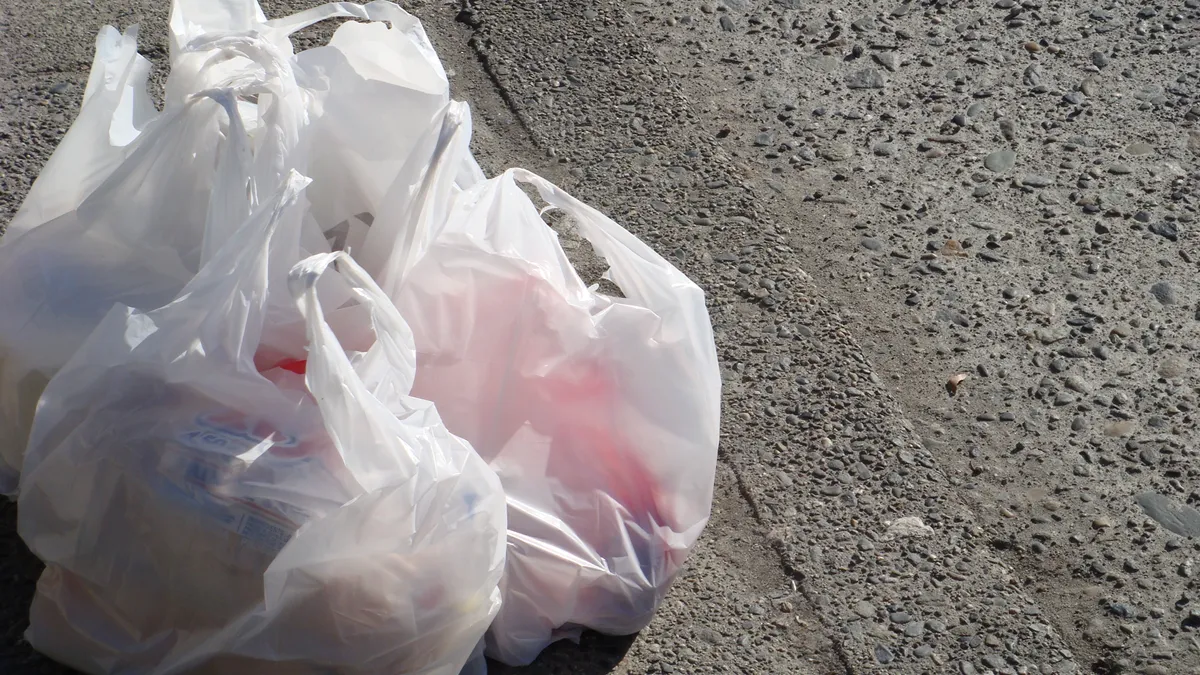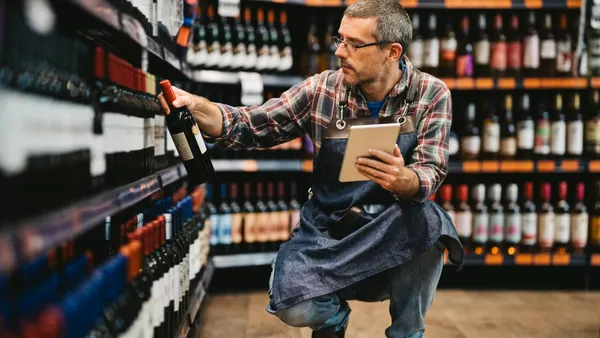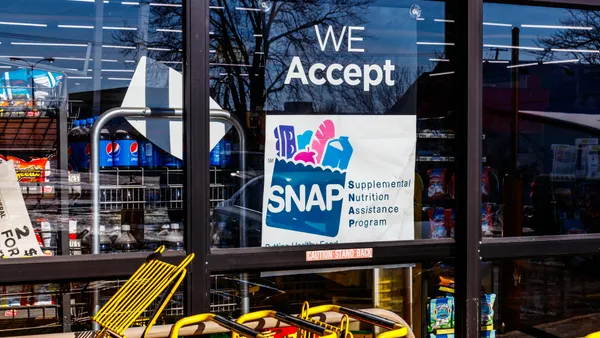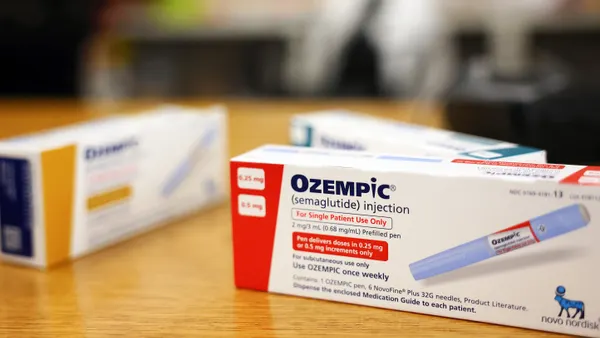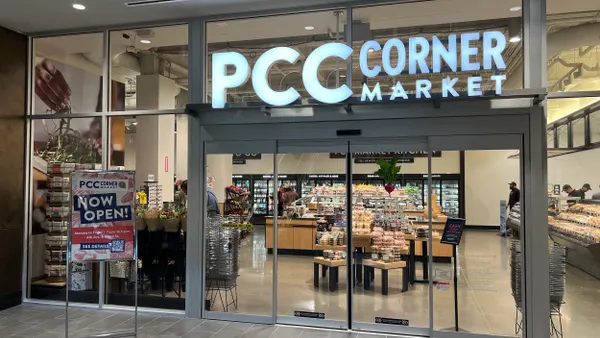Dive Brief:
- A bill banning or limiting the use of single-use plastic and paper carryout bags is awaiting the consideration of New Jersey's governor after passing the Garden State’s two legislative chambers on Thursday.
- If enacted, it would be the strongest single-use plastics ban in the U.S., according to environmentalists and the governor. Gov. Phil Murphy said he supports the bill, noting it "will significantly reduce the harm that these products cause to our environment,” according to an emailed statement from the governor’s office.
- The bill would ban grocers occupying 2,500 square feet or more from selling or providing single-use paper carryout bags, while banning stores and foodservice businesses from offering single-use plastic carryout bags. It would also place restrictions on single-use plastic straws, ban polystyrene foam foodservice products and have the state's Department of Environmental Protection create a Plastics Advisory Council to oversee the implementation and effectiveness of the bans.
Dive Insight:
New Jersey’s plastic bag bill is the latest signal that sustainability efforts across the U.S. won’t be left at the curb.
The coronavirus pandemic paused sustainability measures, with several state legislatures temporarily easing their single-use plastic bag bans and retailers barring reusable bags over fears they could spread the virus. States and stores are now gearing back up to resume their efforts to reduce plastic use.
Even as the pandemic paused plastic reduction efforts, research points to an increased concern about the environment. Nearly half of consumers are more worried about the environment because of the pandemic and roughly 78% of respondents said companies should more clearly explain their products’ environmental impacts, according to a survey this spring by global management and consulting firm Kearney.
Eight states — California, Connecticut, Delaware, Hawaii, Maine, New York, Oregon and Vermont — already have single-use plastic bag bans, following California’s lead in 2014, according to the National Conference of State Legislatures. Meanwhile, grocers have taken up their own sustainability efforts, with major chains pledging to reduce plastic packaging and zero-waste grocery stores popping up around the country.
Many grocers have set 2025 as a benchmark year. Albertsons plans to have reduced its plastic packaging by that point, while Aldi aims to have 100% of its packaging be reusable, recyclable or compostable and cut packaging materials across its entire range cut by at least 15%. Also by 2025, Kroger aspires to have eliminated waste across its company and Giant Eagle plans to no longer use single-use plastics.
Pre-pandemic, grocers stepped up their reusable bag offerings. Earlier this year, Publix tested custom-designed reusable bags in Miami Beach, Florida. For a limited time, Stop & Shop gave away free reusable bags to customers who brought in single-use plastic bags for recycling after the supermarket company said it would eliminate single-use bags from all of its Connecticut stores starting Aug. 1, 2019.
Plastic bag bans haven't been popular with the plastics industry. Additionally, the New Jersey bill faced pushback from food retailers worried they would spend more on providing paper bags if they didn't have plastic ones as options, ultimately prompting the inclusion of the single-use paper bag limitations in the bill, Waste Dive reported.
Supporters of the bill, including Environment New Jersey, hailed the legislation as a way to transition stores and consumers to reusable bags. “Plastic and polystyrene items we use for 15 minutes should not end up in our environment and communities for endless generations,” Doug O’Malley, director of Environment New Jersey, said in a statement.



